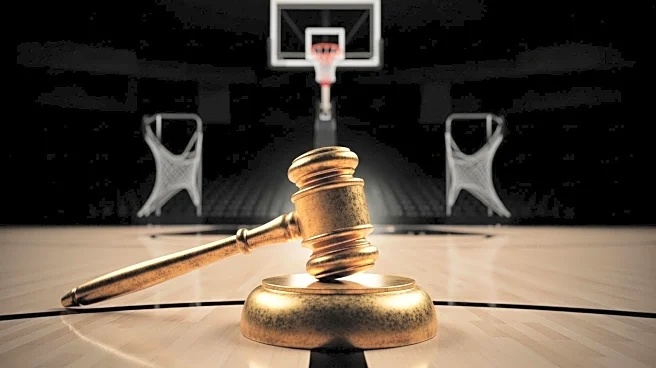What's Happening?
Indiana safety Louis Moore has won a legal battle against the NCAA, allowing him to continue playing for the rest of the 2025 season. Judge Dale Tillery ruled that the NCAA's five-year eligibility rule violated the Texas Antitrust Act. Moore, who had previously played at Navarro Junior College and transferred to Indiana, challenged the rule in August. The ruling permits Moore to play despite the NCAA's restrictions, as he has already participated in Indiana's first four games this season. Moore has been a key player for Indiana, leading the team with 23 tackles and two interceptions.
Why It's Important?
The ruling is significant as it challenges the NCAA's authority and its eligibility rules, potentially setting a precedent for other athletes facing similar restrictions. This decision could impact the NCAA's governance and its ability to enforce eligibility criteria, affecting college sports dynamics. For Indiana, Moore's continued participation strengthens their defense, enhancing their prospects in the Big Ten conference. The case also highlights the legal complexities surrounding college athletics and the balance between institutional regulations and individual rights.
What's Next?
Indiana is set to make its first road trip of the season against Iowa, with Moore expected to play a crucial role. The NCAA may consider appealing the decision or revising its eligibility rules to prevent future legal challenges. Other athletes and institutions might be encouraged to contest similar restrictions, potentially leading to broader changes in NCAA policies. Stakeholders in college sports, including universities and athletes, will closely monitor the implications of this ruling.
Beyond the Headlines
The case underscores the ongoing debate over athlete rights and the NCAA's regulatory framework. It raises questions about the fairness and legality of eligibility rules, particularly in light of antitrust laws. The decision may influence future discussions on athlete compensation and the NCAA's role in college sports governance. It also reflects broader societal shifts towards empowering athletes and challenging traditional sports institutions.









